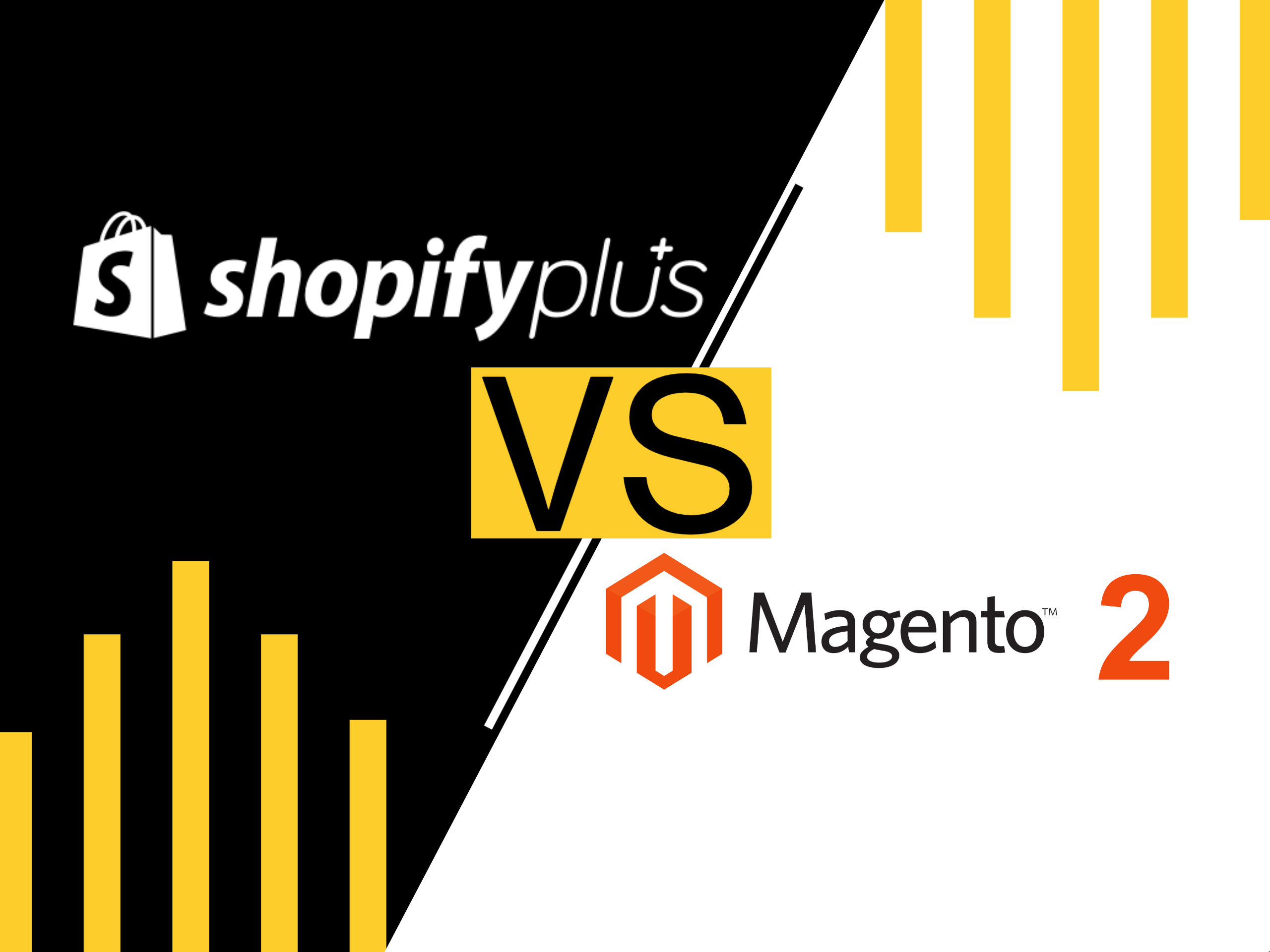Shopify vs Big Cartel - Quick Overview
What is Shopify?
Shopify is an all-in-one commerce platform that enables people to start, run and grow a business. Brands of all sizes use Shopify, whether they’re selling online, in retail stores, or on the go. There are around 5 million sites live on the platform.
What is Big Cartel?
Big Cartel is an ecommerce platform specifically designed for independent artists, makers, and small businesses to sell their products online. Unlike larger platforms like Shopify or WooCommerce that target businesses of all sizes, Big Cartel focuses on simplicity and ease of use, making it ideal for individuals or small teams just getting started in ecommerce. Around 50,000 sites are trading on the platform.
Shopify vs Big Cartel - A Detailed Comparison
Pricing
Big Cartel Pricing
Big Cartel has a simple 3 tier plan with associated pricing:
Gold - the basics to sell online, for free (only up to 5 products)
Platinum - For growing stores with more inventory and orders, costing $15 (£11.20) per month
Diamond - the top-tier with support for ‘stores at scale’ - $30 (£22.30) per month - this allows up to 500 products, with 25 images per product.
Big Cartel Transaction Fees
Big Cartel doesn’t charge any transaction fees, but all plans allow stores to accept cards, PayPal, Afterpay, and more. (There are fees imposed by these payment processors.)
Shopify Pricing
Shopify has a 4 tier pricing system:
Basic - for solo entrepreneurs, starting at £19 per month
Grow - for small teams, starting at £49 per month
Advanced - as your business scales, starting at £259 per month
Plus - for more complex, enterprise businesses, starting at £1,716 per month
Shopify Transaction Fees
The rates differ depending on the plan you’re on, starting from the following:
| BASIC | GROW | ADVANCED | PLUS |
|---|---|---|---|
| Online: 2% + 25p | Online: 1.7% + 25p | Online: 1.5% + 25p | ‘Competitive rates’ |
| In person: 1.7% + 0p | In person: 1.6% + 0p | In person: 1.5% + 0p | ‘Competitive rates’ |
| 3rd party payment providers: 2% | 3rd party payment providers: 1% | 3rd party payment providers: 0.6% | ‘Competitive rates’ |
Ease of Use
Big Cartel has a simple store setup. It’s very user-friendly, and because it’s designed to be usable by solo entrepreneurs, minimal technical skills are needed, and it has a quick setup process for a basic store.
Shopify employs a drag and drop set-up for those without development knowledge, and its ‘Liquid’ templating language also allows for more advanced customisations for those with coding skills. Moreover, you can increase the customisation of your store through the more than 8,0000 third-party integrations in the Shopify App Store (all of which are strictly vetted by Shopify before release).
Design and Customisation
Big Cartel has customisable themes and it also allows HTML/CSS customisation if needed. It has fewer themes than the number typically provided by competing ecommerce platforms. On the plus side, Big Cartel’s templates are free, which isn’t the case with its competitors.
Shopify has dozens of free and premium themes optimised for ecommerce, with mobile-responsive designs out of the box. The paid-for themes range from £100 to around £350.
It’s possible to get a decent Shopify store up and running within a couple of hours, however for a unique store with bespoke functionality, brands often choose to employ the services of a design and development agency to get them up and running and to help with ongoing maintenance.
Product and Inventory Management
Big Cartel’s plans limit the number of products you can sell, from 5 to a maximum of 500, whereas Shopify has no limits, across all plans.
In terms of adding products, Big Cartel has a clean dashboard that lets you add products, view orders, create discounts and check stock. It’s easy to use but pretty basic - which is a theme across the whole platform experience, really. This is not a bad thing, it’s a great tool that works well for the niche audience it’s been designed for.
Shopify’s inventory management is built directly into its system and is designed to be simple but powerful. Whether you're selling a few products or managing hundreds of SKUs, Shopify gives you the tools to track, update, and sync your inventory across your store.

Sales and Ecommerce Features
Shopify offers advanced sales features like multi-channel selling (Facebook, Instagram, Amazon), abandoned cart recovery, discount codes, and integrated payment processing. It supports unlimited products, multiple inventory locations, and a wide range of apps for enhanced functionality. Shopify’s sales tools are built for scalability, making it ideal for growing brands.
In contrast, as discussed, Big Cartel is designed for independent artists and small sellers. It’s simpler and more limited, allowing fewer products (up to 500 on the highest plan), basic inventory tracking, and fewer payment options (Stripe, PayPal). Big Cartel lacks advanced features like abandoned cart recovery, multi-channel selling, or extensive app integrations.
While Big Cartel excels in simplicity and affordability, Shopify leads in sales and ecommerce capabilities, making it a better fit for businesses looking to grow and automate their operations. Shopify also offers more customisation and scalability.
Shopify has an App Store with over 8,000 plugins to help create bespoke functionality on your store across areas like sales, marketing, and customer experience. Big Cartel doesn’t have the equivalent, although it is possible to connect with Zapier to other platforms in a more limited way.
Shipping and Fulfilment
When it comes to shipping and fulfillment, Shopify offers a far more advanced and flexible system than Big Cartel. Shopify includes built-in shipping tools that support real-time carrier-calculated rates (UPS, USPS, DHL, etc.), label printing, multi-location fulfillment, and automatic tax and shipping calculations. You can manage shipping zones, rates, and delivery options easily. Shopify also integrates easily with major dropshipping platforms like DSers, Spocket, and Zendrop, and supports print-on-demand services like Printful and Printify through the Shopify App Store.
In contrast, Big Cartel’s shipping features are much more limited. It doesn’t offer real-time shipping rates natively, and you have to manually set flat or weight-based rates. There’s no built-in label printing unless you connect to third-party tools like ShipStation or use PayPal’s shipping features. Dropshipping and print-on-demand are only supported via manual setup or limited third-party services like Printful—without the seamless integrations Shopify offers.
Overall, Shopify is better suited for businesses looking for streamlined, automated fulfillment workflows, especially those using dropshipping or print-on-demand. Big Cartel is fine for basic shipping needs, but lacks the depth and automation needed for scaling or complex fulfillment strategies.
Customer Support and Resources
Shopify offers comprehensive customer support and resources, making it ideal for users at all levels. Support is available 24/7 via live chat, email, and phone (depending on your plan). Shopify also provides a vast Help Center, extensive video tutorials, community forums, and detailed developer documentation. For advanced users, Shopify Plus merchants receive dedicated account managers and priority support. Its support ecosystem is robust, meaning help is always available when scaling or troubleshooting.
Big Cartel’s support is more limited, reflecting its minimalist approach. Support is available only via email, typically Monday to Friday, during business hours (US time). There’s no live chat or phone support. While Big Cartel does offer a simple, easy-to-navigate Help Center with articles and basic guides, it lacks the depth and breadth of Shopify’s resources. There’s also no official user forum or advanced support options.
For users who need fast, responsive help or who are running more complex operations, Shopify leads in customer support. Big Cartel is sufficient for small-scale sellers with basic needs but may fall short for users who require hands-on assistance, especially outside regular business hours or during technical issues. The price of the platform reflects this.

Big Cartel vs Shopify: Best For…
Big Cartel is ideal for:
artists and makers selling prints, clothing, jewellery, etc.
small brands with minimal inventory
entrepreneurs who want a simple online store without marketplace competition
Shopify is ideal for:
startups to large brands, thanks to its powerful tools, apps, and multi-channel selling
Merchants needing built-in ecommerce features (integrated payments, shipping, inventory, and analytics)
brands trading from different territories or with in-person stores who need point of sale systems to integrate with their online offering
Big Cartel Vs Shopify - Quick Overview
| Feature | Big Cartel | Shopify |
|---|---|---|
| Best For | Artists, small brands, indie creators | All business sizes, especially growing businesses |
| Ease of use | Very easy, minimal setup | More powerful, slightly steeper learning curve |
| Design & Themes | Limited themes, basic customisation | Large theme library, fully customisable |
| Inventory Limits | Free plan: 5 products; Paid: 50–500 products | No limit (depending on plan) |
| Monthly Cost | Free–$19.99/month | Starts at $39/month |
| Transaction Fees | 0% (only payment processor fees) | 0% if using Shopify Payments, or 0.5–2% otherwise |
| Payment Gateways | Stripe, PayPal | Shopify Payments, PayPal, dozens of others |
| App Store & Integrations | Limited app support | Extensive app store with thousands of integrations |
| Blogging Capabilities | No built-in blog | Full blogging system |
| Shipping Tools | Basic tools | Advanced options including real-time rates |
| Support | Email only (Mon–Fri) | 24/7 chat, email, and phone support |
Big Cartel Vs Other Platforms
| Feature | Big Cartel | Shopify | Etsy |
|---|---|---|---|
| Target Audience | Small creators/artists | All sizes of businesses | Handmade/vintage goods |
| Ease of Use | Very easy | Moderate | Easy |
| Monthly Cost | Free to low-cost | Higher starting cost | Free to list, takes fees |
| Customisation | Limited (basic) | Extensive | Limited |
| Marketplace | No | No | Yes |
Big Cartel vs Shopify FAQ
1. Which platform is better for beginners?
Big Cartel is easier for total beginners with very simple needs, especially artists or makers selling a few products. Shopify has a slightly steeper learning curve but is still user-friendly and far more powerful for long-term growth.
2. Can I use dropshipping or print-on-demand on both?
Shopify is ideal for dropshipping and print-on-demand, with built-in integrations for apps like DSers, Printful, and Spocket. Big Cartel supports these services in a limited way, usually requiring manual setup or third-party tools.
3. Which is more affordable?
Big Cartel is cheaper overall, with a free plan for up to 5 products and low-cost paid plans. Shopify is more expensive, but offers far more features and scalability.
4. Do both platforms support inventory tracking?
Yes, but Shopify’s inventory tools are more advanced, supporting bulk edits, multi-location tracking, and automation. Big Cartel offers basic inventory tracking for paid plans only.
5. Which is better for growing a business?
Shopify is better for growth, offering scalable tools, integrations, analytics, and support for larger catalogs and multi-channel sales. Big Cartel is best for staying small and simple.
Shopify Vs Big Cartel Summary
Choose Big Cartel If:
You’re an artist or solo creator with a small number of products.
You want a quick, low-cost way to get online.
You don’t need advanced tools or integrations.
You prefer a minimalist ecommerce experience.
Choose Shopify If:
You plan to scale your business or already sell at higher volume.
You want more control, features, and apps (like marketing, SEO, dropshipping).
You need a robust checkout system and multiple sales channels (e.g., social media, POS).
You may want to hire a developer for deep customisation later.
At Radiant, we specialise in Shopify - design, development, and store optimisation, to help improve your site on an ongoing basis to continually grow your business.
If you’d like to explore working with us, drop us a message and one of the team will get in touch to discuss your project or needs, and see if you think we’d be a good fit.










